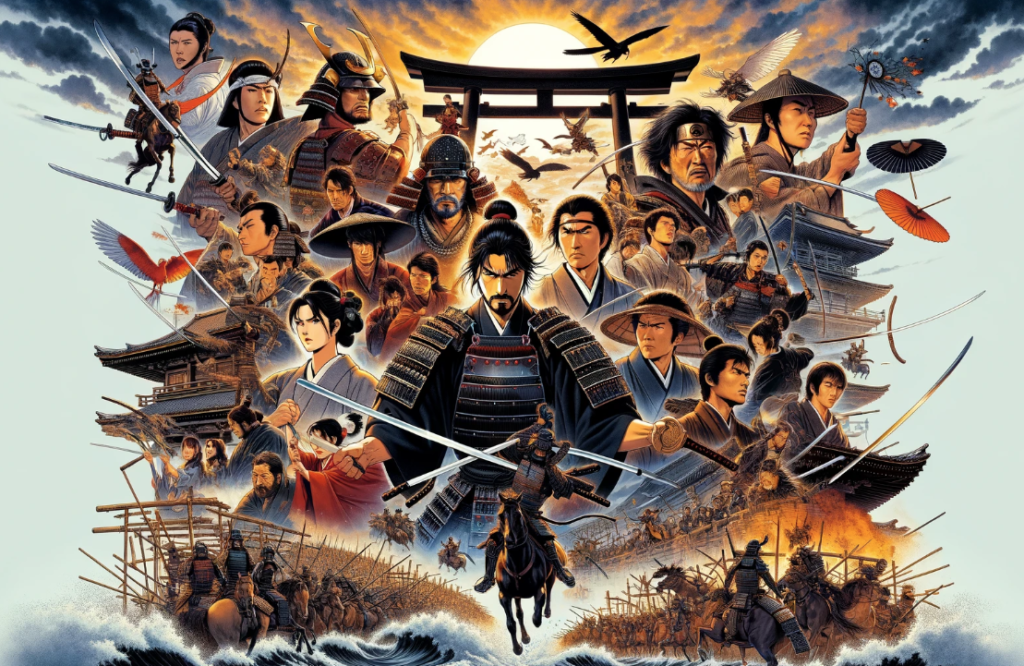
Lesson 52 iconic films of Akira Kurosawa
Topic Question: What are some iconic films by Akira Kurosawa, and why are they important in world cinema?
No. 1: Introduction– First, try answering the question yourself.
The instructor will provide advice on vocabulary, grammar, and expression corrections.
Sample Answer – Let’s read aloud. Instructor will check your pronunciation and accent.
Akira Kurosawa, one of the most influential filmmakers in the history of cinema, has left an indelible mark on both Japanese and world cinema. His films, known for their epic storytelling, innovative techniques, and deep humanism, have inspired generations of filmmakers and audiences worldwide. Some of his most iconic films include “Seven Samurai,” “Rashomon,” and “Ikiru.” “Seven Samurai” is celebrated for its groundbreaking narrative structure and dynamic character development, influencing countless films and genres, including the Western remake, “The Magnificent Seven.” “Rashomon,” famous for its innovative use of multiple perspectives to tell a single story, challenged audiences’ perception of truth and reality, inspiring the term “Rashomon effect” in popular culture. “Ikiru,” a poignant exploration of the meaning of life, showcases Kurosawa’s mastery in portraying complex human emotions. Through these and other works, Kurosawa has contributed significantly to the art of filmmaking, earning a place in the pantheon of cinema’s greatest directors.
No. 2: Vocabulary Building- 5 Words to Learn and Their Meanings
Pronounce the Words Correctly (Pronunciation Training) + Make Sentences Using the Words Instantly
- Epic (叙事詩的, jojishiteki): Grand in scale and scope, often involving heroism and adventure.
“Kurosawa’s ‘Seven Samurai’ is an epic tale of bravery and honor.”
- Innovative (革新的, kakushinteki): Featuring new methods; advanced and original.
“‘Rashomon’s innovative narrative technique has influenced filmmakers around the world.”
- Humanism (人文主義, jinbun shugi): An outlook or system of thought attaching prime importance to human rather than divine or supernatural matters.
“Kurosawa’s films are deeply rooted in humanism, exploring the complexities of the human condition.”
- Dynamic (ダイナミック, dainamikku): Characterized by constant change, activity, or progress.
“The dynamic character development in ‘Seven Samurai’ engages the audience throughout the film.”
- Poignant (心を打つ, kokoro o utsu): Evoking a keen sense of sadness or regret.
“‘Ikiru’ is a poignant study of life’s meaning, demonstrating Kurosawa’s emotional depth.”
No. 3: Key Idiom and Example Sentences
“Push the envelope” – To go beyond the limits of what is normally done or considered acceptable.
“Akira Kurosawa was known to push the envelope with his cinematic techniques, setting new standards for filmmakers.”
“Through ‘Rashomon,’ Kurosawa pushed the envelope in narrative storytelling, changing how stories could be told in cinema.”
No. 4: Discussion and Exchange of Opinions on the Sample Answer
Instructor: How have Kurosawa’s films influenced modern filmmaking, both in Japan and internationally? Can you identify elements in contemporary films that reflect his influence?
Student: [Opinions of students]
No. 5: Free Discussion on the Topic
Let’s explore the themes and techniques that are characteristic of Kurosawa’s filmmaking style. How do these elements contribute to the timelessness of his work? Discuss the cultural and historical contexts of his films and their relevance today. Additionally, consider the global reception of Kurosawa’s films. How have they been interpreted and appreciated by audiences and critics outside of Japan? What lessons can current and future filmmakers learn from Akira Kurosawa’s approach to cinema? How does his legacy continue to shape the film industry worldwide?







